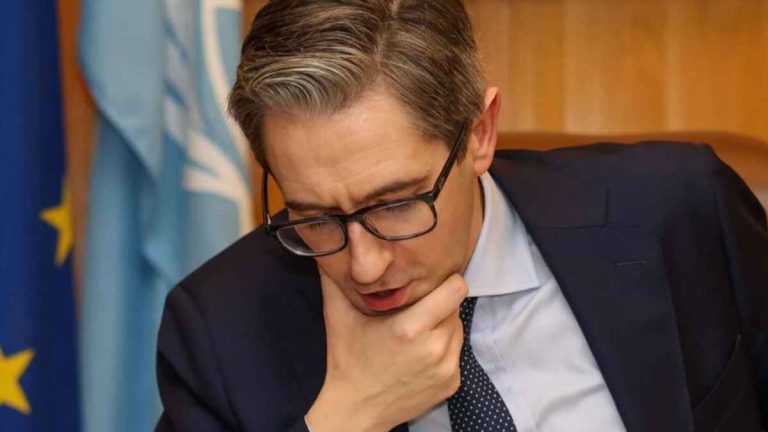Ireland’s political landscape is shifting as the two principal centre-right parties, Fine Gael and Fianna Fail, edge closer to finalising a coalition agreement with a group of mostly conservative independent lawmakers. This development follows the recent election held on November 29, where the two parties collectively fell just two seats short of the 88 required for a governing majority.
The coalition talks gained momentum when members of Fine Gael and Fianna Fail supported the election of Verona Murphy, an independent member of the Regional Independent Group, as the speaker of the lower house of parliament. This role is one of the most prestigious and well-compensated positions within the Irish political system. Simon Harris, the Prime Minister and leader of Fine Gael, encouraged his party members to back Murphy’s candidacy, asserting that this support would facilitate overall government formation.
The election of Murphy marks a significant step towards the establishment of a new coalition government comprising Fine Gael, Fianna Fail, and the Regional Independent Group. State broadcaster RTE reported that this appointment “paves the way” for solidifying the coalition, which is expected to bring together these centre-right parties and their independent allies.
As coalition negotiations continue, both Fine Gael and Fianna Fail are also engaging in discussions with two smaller centre-left parties, Labour and the Social Democrats. However, political analysts suggest that a coalition with the independents is more probable than one with the centre-left parties. This preference reflects the growing trend of independent lawmakers in Irish politics, who often align with centre-right policies.
Fine Gael and Fianna Fail have set a goal of reaching a coalition agreement early in the new year, demonstrating a commitment to establishing a stable government that can address the pressing issues facing Ireland. The outcome of these negotiations is closely watched, as the new coalition will need to navigate complex challenges, including economic recovery and public service reform, while also responding to the needs of a diverse electorate.
Both parties have historically been significant players in Irish politics, with Fine Gael known for its focus on economic policies and social liberalism, while Fianna Fail has traditionally been associated with more conservative stances. Their collaboration, alongside independent lawmakers, could lead to a government that prioritises stability and pragmatic governance in the coming years.
The recent electoral results and coalition discussions underscore the evolving nature of Ireland’s political landscape, where the influence of independent lawmakers is becoming increasingly evident. As the coalition talks progress, the future of Ireland’s government remains in the balance, with potential implications for the nation’s policies and direction.
In conclusion, the collaboration between Ireland’s centre-right parties and independent lawmakers could herald a new era of governance that reflects a broader spectrum of political interests. The focus now shifts to the outcomes of ongoing negotiations and the potential formation of a coalition government that resonates with the electorate’s aspirations.


